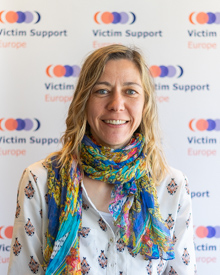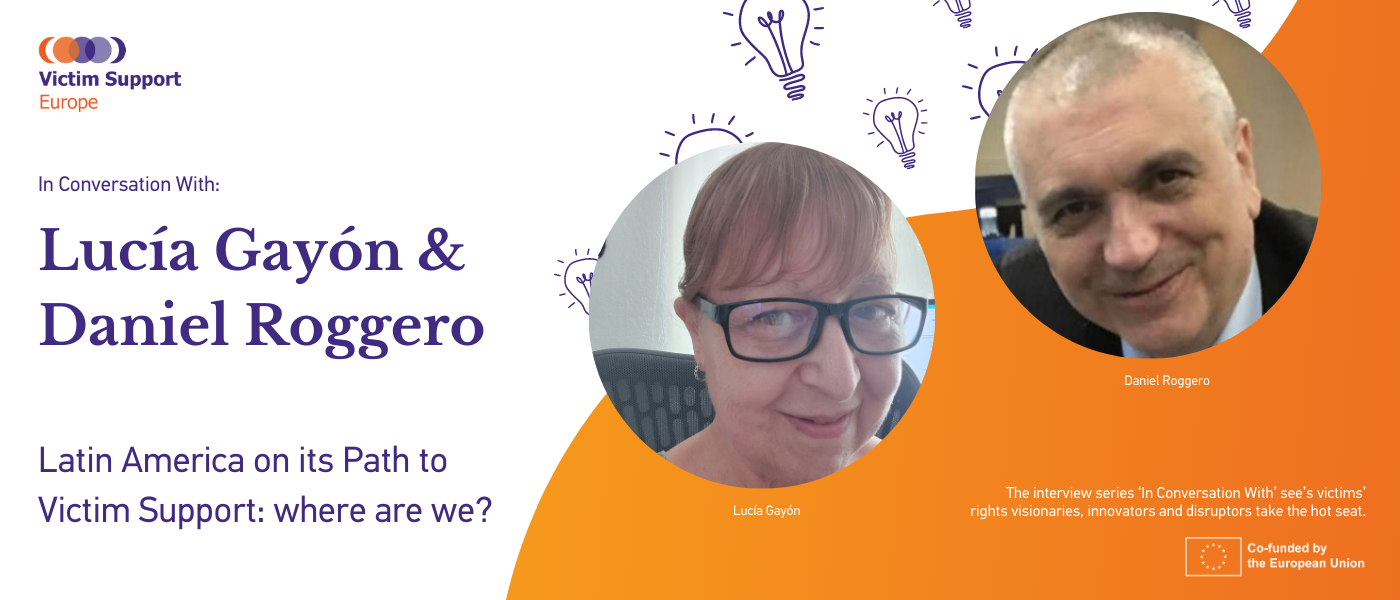

In Conversation With ‘Victim Support Americas’ visionaries Lucía Gayón and Daniel Roggero
Latin America’s growing independence has emerged as a significant geopolitical shift in the past decade, impacting not only the region but also the global stage. A bloc of 32 Latin American and Caribbean nations is steadily gaining influence, asserting their distinct interests and priorities. Looking ahead, another crucial milestone for Ibero-America’s society would be the establishment of a comprehensive system to support victims, marking a historic advancement.
As the question arises in one’s mind, they may wonder about the significance of victim support. Why, indeed, is it necessary?
For the last three decades, Latin America has been the most violent region in the world, in a sustained manner and with an upward trend. “During the period 1990-2016, the region’s average homicide rate hovered between 14.5 and 16.7 per 100,000 inhabitants, or about two to three times the world average, before rising to 17.2 in 2017. In other words, 37% of homicides on the entire planet are concentrated in the American continent, with barely 8% of the world population, according to the United Nations”, explains Daniel Roggero, an Argentine lawyer, one of the founders of the civil association Usina de Justicia, which is in charge of accompanying homicide victims and recovering fair justice for them.
“The region has a rate of 21.5 homicides per 100,000 inhabitants, more than three times the global average (7 murders per 100,000 inhabitants). In the last 10 years, the regional homicide rate in Latin America has increased 3.7% a year, three times the population growth rate of 1.1%. All these data mean that 17 of the 20 most violent countries in the world are in Latin America”, continues Daniel. “The prospects for the future are not encouraging, quite the contrary: it foresees the continued growth in the number of homicides: in 2030 this rate will increase to 36.9 murders per 100,000 inhabitants.”
In 2014, Usina de Justicia was established and received official recognition from the Organization of American States (OAS), primarily due to Roggero’s efforts and involvement in various OAS Annual Assemblies. According to Roggero, the OAS registration of Usina de Justicia has provided valuable insights into the support needs of the international community in the Americas.
“I realised the importance of international support, like the OAS, to assist other countries in the region. Some places don’t have organisations like Usina de Justicia, or if they do, they lack resources and influence to provide adequate help. Moreover, governments in most countries in the region fail to recognise and support victims. It’s a challenging situation, but with the right support, we can make a difference.”
 Thanks to this collaboration, Usina de Justicia played a vital role in advocating for the enactment of the Victims Law in Argentina. Their efforts bore fruit when the law received unanimous approval from the Parliament in 2017.
Thanks to this collaboration, Usina de Justicia played a vital role in advocating for the enactment of the Victims Law in Argentina. Their efforts bore fruit when the law received unanimous approval from the Parliament in 2017.
At that time, Lucía Gayón, an entrepreneur from Ixtapa, Mexico, who manages an internet marketing company, became aware of Usina de Justicia‘s work and expressed her willingness to support and collaborate on initiatives related to victims’ development.
“The impact of our joint efforts began to unfold shortly. In February 2022, we established the Coalition for the Inter-American Convention on the Human Rights of Victims. This Coalition’s objective is to present to the Organization of American States the proposal to launch a Convention in the Americas in a similar way to the one that Europe has had for years”, says Gayón. “In October 2022, we presented this proposal to the 52nd OAS General Assembly, held in Lima, Peru, with the names of 40 associations and individuals that support this initiative. While attending the Assembly, we realized the urgent need to establish Victim Support Americas in order to coordinate the development of the support system in a more effective and efficient way. That’s when we resorted to the generous help of Victim Support Europe who have guided us by giving us ideas and advice on how to establish this kind of an association in this region.”
Daniel and Lucia have faced challenges in finding people who are willing and able to work together on this initiative. The local associations don’t have enough human resources or money to support them, and these factors are making it difficult to formalise the project.
“We recognise that it is a slow process because we see that the associations that work in favour of victims in the region, especially in Latin America, are very limited in terms of human resources, time and money. The same thing happens to us,” says Roggero. “Although we have investigated the best way to create this inter-American association, we are limited by national laws and processes that do not allow us, for example, to formalise an association with members from different countries. All the members of the civil association must be people from the same country and they would only accept partners or founders who have a residence permit or who have been nationalised”.
“We are also in the initial phase of how to attract members to support this initiative, as we still have nothing to offer in return”, adds Gayón. “In our region, corruption is a major obstacle that prevents people from wanting to help victims. The fear of becoming victims themselves when trying to help is a significant factor. Unfortunately, there is no judicial or police support or protection available in our area for both the victims and those who wish to assist them.”
Still, Gayón and Roggero have no plans to hang up their gloves. “Our job is to continue looking for support from individuals who want to join this venture, so that we can also create a simple and realistic plan that will grow little by little. We are very enthusiastic and willing to achieve the goal of creating Victim Support America by taking simple steps. We plan to participate in the 53rd Annual Assembly of the OAS this year, to follow up on the proposal of the inter-American convention. If the OAS accepts, we hope we can have great support in this region. And of course, we are grateful to Victim Support Europe (VSE) for their assistance and interest in this project. For us, VSE is the model to follow.”
Our interview series ‘In Conversation With’ see’s victims’ rights visionaries, innovators and disruptors take the hot seat.

